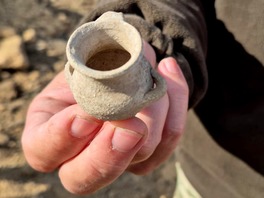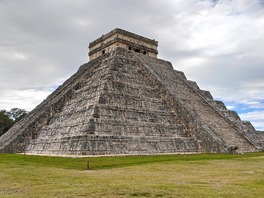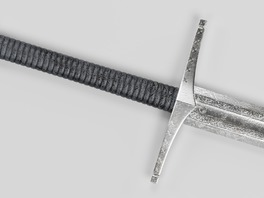A defunct Soviet satellite could return to Earth next week, which has already caused concern among space experts - we could all potentially find ourselves in the line of fire.
This is reported by Livescience.
Launched in March 1972 by the USSR, the Kosmos-482 probe was sent to collect data from the inhospitable surface of Venus. However, a malfunction in one of the rocket boosters left the intergalactic reconnaissance vehicle stuck in Earth orbit—literally out of control.
"The spacecraft could very well survive re-entry into Earth's atmosphere and impact with the ground. I expect it to have a one-in-a-thousand chance of hitting someone," British-American astronomer Jonathan McDowell wrote on his blog.
The spacecraft, about the size of a car, is expected to re-enter Earth's atmosphere sometime between May 7 and 13 - give or take a few days.

According to Dutch space expert Mark Langbroek, the satellite can penetrate Earth's force field and "fall in unharmed" because it was designed to "survive the passage" through Venus' fiery atmosphere.
Space.com even created a model of a spacecraft re-entry that shows the final velocity of debris at 146 mph or more upon impact with land or the ocean. McDowell compared the phenomenon to “a car falling out of the air at 100 to 200 mph.”
As experts explain, although the probe was equipped with a parachute, it may not work now, so if it survives re-entry into the atmosphere, it will fall hard.
"At just under 500kg and 1m in size, the risk of impact is similar to that of a meteorite. If something were to land in a random part of the Earth, the chances of it hitting a person are about one in 10,000, " McDowell told the Daily Mail. " The odds of it hitting you are one in 10 billion."

As for where the malfunctioning spacecraft could potentially land, Langbroek suggested it was "somewhere between 52 degrees north and 52 degrees south latitude," meaning an area that encompasses "a large part of the southern and middle latitudes of Europe and Asia, as well as the Americas and all of Africa and Australia."
"Of course, the greatest likelihood is that it will land in one of the oceans," he added.
According to McDowell, in any case, responsibility for the consequences of the fall of the Soviet junk will fall on Russia.
" In the event that a faulty satellite "causes harm – or, worse, harms someone – the Russian government will be held responsible," McDowell said.
Kosmos-482 was designed as a daughter probe to Venera 8, which was launched in July 1972 and landed on the red-hot surface of Venus, becoming the second spacecraft in history to do so. The satellite then transmitted data from Venus for just over 50 minutes before finally burning up in the fiery environment.
Recall that in early 2025, NASA's solar probe "touched" the Sun for the first time in history - it flew only 6.1 million km above the Sun's surface.






